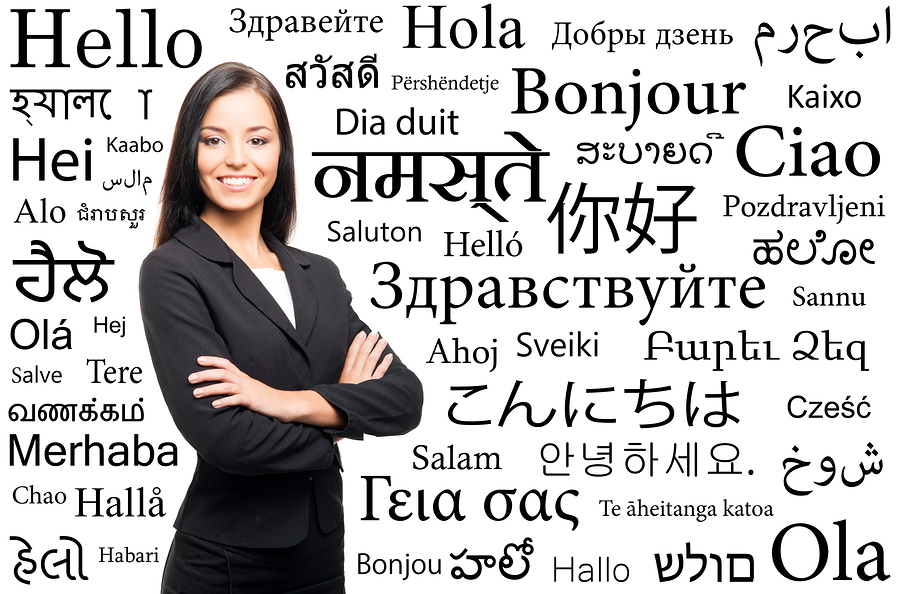
“How long is a piece of string?” replied the graphic designer when asked whether the digital photo file provided by the client was ‘good enough’ to be used in a range of not-yet-decided advertising collateral.
In a restaurant on a Pacific island, the waiter stood, quickly drawing up both eyebrows as if to say “What else…?” so I felt compelled to say “Er…, I just told you, I would like a cup of coffee, nothing else please.” He smiled nervously and quickly disappeared.
The following day I found out that the displayed ‘eyebrow wink’ simply means ‘yes’ on this particular island. So, when the same waiter asked “Is that all you would like madam?” in a clear attempt to avoid the earlier embarrassment, I replied with an eyebrow wink of my own and a broad smile, and I could literally see his sheer relief and joy. We ended up talking about life on the island and in Australia, both walking that extra mile to understand each other’s culture a bit better.
One manager I came across in my past used to work himself into a lather of jargon during meetings, with the predictable result that members of his team were typically more confused after every meeting. One of those meetings was supposed to create a common understanding of new standards, processes, and templates to be spearheaded by the newly-formed team. Without the clarity the meeting should have created, many torturous hours were spent on iterative informal meetings and group email trails, brimming with desperate attempts and individual opinions to guesstimate what the manager might have meant.
“So what?” you may ask while reading the above, “this happens all the time, and yes, we have different languages. It’s a fact of life and the world we live in, so deal with it.”
If you think that way, you have probably never seen the spark lighting up in someone’s eyes when you make a small effort to learn their language by asking them about it, or surprising them with a few words that you adopted earlier. For me, showing genuine interest in someone’s ‘comfort zone’ language is a golden key I have dangling around my neck at all times, ready to be used with glee. This key has unlocked and opened many doors for me, and enabled me to form strong professional and personal relationships, built on trust and mutual respect.
Language matters, in many ways
Speaking in a language that your audience will easily understand seems common sense and easy to do, however we as humans tend to revert to communicating the way we like to speak or write, and through the channels we prefer, with little regard to the fact that message recipients filter and interpret information based on their experiences and values. Misunderstandings are an inevitable result.
Think of the specialist language used in different organisational departments such as IT, Finance, or Records Management. How much information gets lost due to different meanings being attached to the same word or label, because no-one makes an effort to clarify?
Crossing the cultural divide and learning about yourself while doing so
Personally, I see the effect of speaking another person’s language as being so profound that I have become a little bit addicted to learning languages. I am currently studying my sixth language. What I receive as an added bonus is the feeling of doing something ‘for the first time’, starting from scratch, puzzling endlessly about seemingly jumbled sentences – to finally arrive at a deeper understanding of cultural concepts that I would not know otherwise. For example, the fact that the Hindi language does not have a verb that directly translates to ‘to have’ entertains my thoughts about my Western view of the world on my commute home. It opens my brain to accept different perspectives on a given topic, which in turn makes me a more tolerant person, and prevents me from getting stuck in ‘my way’.
Since moving to Australia more than a decade ago, I wish I had a penny for every time I heard one of the following: “I’m not good at languages, I couldn’t do that”, “We are so far away here, we only need English”, “I am too old to learn a new language”, and the one that always upsets me most: “I wish I had learnt a language when I was young. Now it is too late.”
Top 5 tips about learning a new language
Here are my personal tips to help you rethink learning a new language:
1. It is never too late
You can start learning a new language at any age. The biggest obstacle is taking the first step and finding a learning mode that suits your life requirements. There are myriad ways to immerse in language learning, including online communities which bring people interested in learning languages together from all over the world, for free.
2. It is not about perfection
Tangible benefits of acquiring a new language and trying it out on native speakers are apparent immediately with just a few words, even if they come out in a scrambled way. The biggest effect I find comes from the willingness to make an effort towards the other person’s language. It is universally acknowledged as genuine interest in the other person’s culture and will build a bridge of goodwill from day one.
3. Dare to fail
Learning languages makes you humble. When you start, you feel like standing on ice skates for the first time again (or sitting on a bicycle for readers in warmer climates). Everything is unfamiliar. This is a feeling we tend to seldom experience as we grow older. We typically know how to do things in our daily life, and most of our activities during a typical day are routine, executed at an appropriate level of auto-pilot depending on whether we drive our car or brush our teeth. When learning a new language, you need to be able to laugh about yourself and be prepared to make silly mistakes until you know better. It is a mindset that opens up the willingness to continue learning in other areas of life.
4. Be patient
Depending on how closely related the new language is to your own, your progress may be slower than you would initially hope. Be patient and allow time. Sometimes I found it beneficial to pause and let certain concepts settle in my mind before trying to apply them. Some things only make sense once you advance a little bit further into the grammatical structure. Most of all, don’t ask ‘why’ a different language is structured the way it is. Accept that it just is different to what you are used to, and learn to adapt to a new way of thinking.
5. Enjoy the ride
Every language I learnt so far has provided me with so many opportunities to have fun that it is very unlikely that I will ever stop. New languages for me are an addictive puzzle, to be unlocked and tackled differently, each one of them. The way I learn and the amount of time I can spend has changed over the years, however what never changed is the joy I experience while learning.
So, what stops you from learning a new language? In my experience, the above tips are equally true for learning languages from different country cultures as well as from different organisational cultures. Open your mind and dare to start. At home, learn the language of a holiday destination or that of a neighbour or colleague. At work, learn the language of Finance and HR Operations and Legal.






